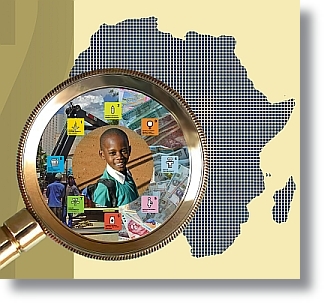MDGs: Africa Must Rethink Approach

 |
| MDGs need scrutiny Photo courtesy |
By opting to pay fees notwithstanding free education, parents have dispelled the myth propagated by international activists that Africans prefer free goodies and do not think long term. Given opportunity to generate wealth and increase their income, Africans will shun a lot more international initiatives on the continent. For example, why should Africa beg for $72 billion per year from donors to enable her meet MDGs even as they lose an estimated $150 billion per year in tax avoidance and capital flight (to donor countries) by international mining transnational corporations? The psychological cost of begging and the malware (malicious software) that comes embedded in donor assistance towards meeting MDGs far outweighs the benefits captured in high enrolment rates, increase in agricultural yields and access to clean water among others.
The quest to achieve donor-centric Millennium Development Goals (MDGs) has denied Africa an opportunity to engage in internal transformation. Africans find themselves trapped like animals in a zoo; where the handlers push for more food, medicine, training and water supply among others. When will Africans grow their own food, develop their own medicine and drive their economies? The MDGs though noble, have robbed Africa of ingenuity and reduced indigenous expertise to measuring and reporting back to donors.
The post MDG world will leave Africa suffering from serious levels of inequality. Parents whose children study in private schools will have an upper hand over those whose children went through the MDG enrolment conveyor belt. High numbers of undereducated graduates (because Africa’s education system does not prepare its graduates to confront the continent’s challenges to produce positive outcomes) will lead to “haki yetu” agitations. Compounded with an increased mobile phone and internet penetration; governance will be brought to a standstill as was the case in Mozambique where cellphone text messages paralyzed the capital in leaderless food riots.
MDGs are likely to create a generation of Africans that does not take responsibility in steering the destiny of their continent – a passenger generation with donors on the driver’s seat! Passengers with no clue on where they come from and where they are headed. The driver (donor) relishes this status quo in order to maintain his/her relevance and interests on the continent. Governments on this continent ought to borrow from parental instincts that push for quality for their offspring in order to transform the MDG discourse into an African narrative.
Africa must push for verifiable measurements and results that capture homegrown input in meeting food needs, health, water, sanitation, infrastructure development and integration into the global economy. This calls for a parallel African index designed to measure Africa’s input in all achieved goals. Africa’s intellectuals ought not to specialize in mere distribution matrix of free seed, fertilizer, and medicines (kazi ya mkono). Africa must invest in ideas and knowledge exchange as opposed to exchange of money, pity and sympathy from the Western capitals. Africa must evaluate the contribution of the skewed global market systems to its inability to meet human development.
By James Shikwati.
The author james@irenkenya.org is Director of Inter Region Economic Network.
